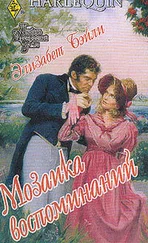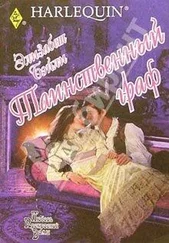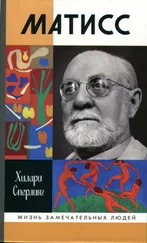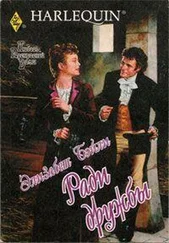Хилари Бэйли - The Ramparts
Здесь есть возможность читать онлайн «Хилари Бэйли - The Ramparts» весь текст электронной книги совершенно бесплатно (целиком полную версию без сокращений). В некоторых случаях можно слушать аудио, скачать через торрент в формате fb2 и присутствует краткое содержание. Жанр: Проза, на английском языке. Описание произведения, (предисловие) а так же отзывы посетителей доступны на портале библиотеки ЛибКат.
- Название:The Ramparts
- Автор:
- Жанр:
- Год:неизвестен
- ISBN:нет данных
- Рейтинг книги:3 / 5. Голосов: 1
-
Избранное:Добавить в избранное
- Отзывы:
-
Ваша оценка:
- 60
- 1
- 2
- 3
- 4
- 5
The Ramparts: краткое содержание, описание и аннотация
Предлагаем к чтению аннотацию, описание, краткое содержание или предисловие (зависит от того, что написал сам автор книги «The Ramparts»). Если вы не нашли необходимую информацию о книге — напишите в комментариях, мы постараемся отыскать её.
The Ramparts — читать онлайн бесплатно полную книгу (весь текст) целиком
Ниже представлен текст книги, разбитый по страницам. Система сохранения места последней прочитанной страницы, позволяет с удобством читать онлайн бесплатно книгу «The Ramparts», без необходимости каждый раз заново искать на чём Вы остановились. Поставьте закладку, и сможете в любой момент перейти на страницу, на которой закончили чтение.
Интервал:
Закладка:
As we mounted the stairs to the town officer’s room, I felt quite easy and calm in my mind.
We went in. Hendricks, the town officer, sat in an easy chair by his big windows, which look out onto the square. The light flooded into the elegant room. Regan and I sat down. Hendricks poured tea for us. He is a big man, ruddy-skinned, round-headed, with a mane of golden hair. The sunlight caught it as we sat there, turning the top of his head into a cap of gold strands. I thought as he sat solidly in his chair that he must look very like a ship’s captain of the old days.
He looked at us with his large, very bright blue eyes. He said, “You look — disturbed.” There was a touch of mild dislike in his tone. Well, it is bad to have citizens walking about looking hard-pressed and upset.
“We have a reason,” Regan said, somewhat defensively.
‘I am sure you have,” he replied. There was a pause as we drank our tea. Hendricks went on looking at us and said finally, “Perhaps you would like to tell me what is amiss with you.”
I disliked the attitude implied in that “with you.” It came to me that Hendricks scented disturbance in our manner and did not wish to have any part in it. But I was confident that once we had told our stories his attitude would alter.
“There are two stories we must tell you,” I said briskly. I had worked often with Hendricks on building projects. I told myself he knew me as a sensible man and a reliable citizen. “In fact,” I said, “these tales may disturb you very much. But they must be told. I will tell one, and Regan the other. Mine concerns Keeney.”
I was studying his face. His eyes flickered at the mention of Keeney’s name. He reminded me suddenly of a big, healthy child being accused of some misdeed which he has decided to deny.
I told him how I had gone to visit Keeney, of the disturbed look of the place, of the locked door, of Mrs. Keeney’s peculiar air and, finally, of the dog. Then I told him that Keeney had not been in Juram when we went there.
Hendricks said, “I am amazed. Tell me your story now, Regan.”
And she told him about our drive from Juram and the wild man caught in the headlights of the car.
When she had finished, Hendricks looked at us with his bright-blue eyes and said, “Thank you. We will look into all this.”
“What are we going to do?” I asked.
“It will be discussed in the council,” he said. He sat stiffly in his chair and looked at me as if he were expecting me to go.
“That hardly satisfies me,” I said. “These are not matters which can wait. Or be left to the council alone to decide — they are for all the citizens. Above all, I would like to know your thoughts.”
He drank some tea and said, “It all needs sifting.”
“Sifting!” I cried. “Do you imply there are errors in our reports?”
‘We need to get to the bottom of it,” he said slowly.
Regan sat up straight in her chair and said, “Come, come, Hendricks. You have accounts of disconcerting events from two responsible citizens. Either you believe that we are making up stories to mislead you, or that we are both deluded, or you must take us seriously and share your thoughts and ideas with us.”
Hendricks gazed out of the window at the people in the square.
He said, “I don’t know.”
We both stared at him. Then Regan stood up and said, “This will have been a great shock to you. Perhaps we should approach your deputy?”
“Leave it with me. Leave it with me,” he muttered.
When we went out of the room, he was still sitting there staring from the window. The sun had gone in.
On the stairs Regan said decidedly, “We must approach someone else.”
I stopped with my hand on the rail. “I wonder,” I said, “if anyone will listen to us.”
Standing on the stairs, she began to laugh. I looked at her in alarm, conscious that down in the hall people were beginning to look up at her.
“What—?” I said.
“You think anyone we tell about these events will behave like Hendricks?” she asked. She was still smiling.
“In most cases,” I said.
She nodded, fairly accepting the situation, which I could not truly understand. “I knew it,” she said. “I told my mother this would happen.”
“What would happen?’ said I.
“I said that one day she would wake up and”—she began to laugh again—”and she would be able to ignore the fact that it was raining and go for a walk without protective clothing and come home and catch pneumonia and die saying what a lovely day it had been.”
I became impatient. “I don’t know what you’re talking about, Regan,” I said. “But I do know that you’re making a public spectacle of yourself. Come home.”
She sobered down and said, “I suppose so. That’s all there is to do, isn’t it?”
the drum heater is beating tonight. He beat for many hours last night and the night before, drumming through the night while we kept fire alight with many logs. We did not sleep till morning. We love that wild drumming and our blood runs hot and fast.
Regan, Arthur and I ate our evening meal in my room at the top of the house this evening. We had never done it before. Through the glass walls we can see south, over the broad, white streets of the city and forward, north, down over the lawn to the forest. The building work lay abandoned. The men had downed tools in the afternoon. Bricks lay in small piles along its length; tools had been flung down on the grass. The deep trench lay like a gash across the lawn between the forest and my house. The foundations were almost ready. The real work should begin tomorrow.
A cool breeze shook the trees of the forest. The sky overhead was cloudy. We sat on as the evening grew darker.
drums beating, drums, beating, beating, beating…
Suddenly, in the dusk, a figure appeared, treading over the ramparts, straddling them, head down to examine them.
“Keeney,” Regan said.
We sat watching him in silence.
In the gloom we could not make out his face. We could see his thickset figure walking heavily along the course of the foundations, bending over the bricks and tools.
Then, in the dusk, he stood athwart the trench, raised his big head, stood with his large hands hanging by his sides and laughed out loud, up at the sky. From where we sat we could catch the faint sound of his laughter.
Arthur said nothing at first. He looked at Keeney laughing in the dark. Then he said, “What the boys say is right.
“What do they say?” I asked.
But he only shook his head.
I looked at Regan. At last I had identified the uneasiness, uncertainty, I had felt this morning and wondered at. It was fear of the future. Regan shot a glance at Arthur.
Regan stood up suddenly and said, “I’m going down to talk to Keeney.” She ran out of the room. I heard her feet on the stairs and saw her running over the lawn — and suddenly Keeney was gone. He had vanished in the darkness.
Regan came back and said, “Come on, Arthur — bed.”
Arthur followed her out of the room. It was quite dark now. I could see the trees ahead and the dim lights of the town behind.
Later I said to Regan, “Shall we leave for another city?”
“It would be the same anywhere else,” she said.
“Other cities may be more ready to defend themselves.”
“After five hundred years of developing our kind of life,” she said mildly. ‘Electing councils, planting gardens, living by the law, playing gentle music, writing gentle verse, creating beauty, pleasure and peaceful scenes everywhere, avoiding every kind of violence, even that of birth and death, as if it were a dreadful, contagious disease—”
Читать дальшеИнтервал:
Закладка:
Похожие книги на «The Ramparts»
Представляем Вашему вниманию похожие книги на «The Ramparts» списком для выбора. Мы отобрали схожую по названию и смыслу литературу в надежде предоставить читателям больше вариантов отыскать новые, интересные, ещё непрочитанные произведения.
Обсуждение, отзывы о книге «The Ramparts» и просто собственные мнения читателей. Оставьте ваши комментарии, напишите, что Вы думаете о произведении, его смысле или главных героях. Укажите что конкретно понравилось, а что нет, и почему Вы так считаете.











